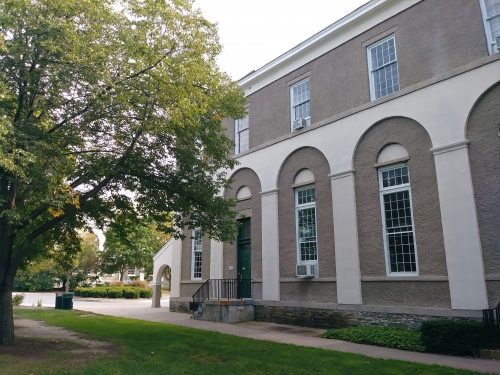All Union Scholars are required to complete a one-course-credit Sophomore Project during their second year. This project may be on a topic of your choice, either related to your future major or something completely different.
In the spring term of your first year, you should begin the process of choosing a topic and supervisor. If you have an idea about what you want to do, try contacting the Union professor you feel would best supervise your project. If you have no idea, you may talk with your advisor, the scholars program director, or with other Scholars. The aim is to come up with a project idea that you are excited to pursue. There will also be a meeting held spring term that will give first-year students a chance to become better acquainted with Sophomore Project options.
The work load expected from a sophomore project is roughly equivalent to that of one course. The project does not have to end in a written paper; it may involve a performance, film, presentation, or other experience, provided you have chosen an appropriate supervisor who supports the project. The Sophomore Project is usually carried as an extra course over two terms, either fall-winter or winter-spring (or even fall-spring, if need be), but can also be completed in one term. All sophomore Scholars are strongly encouraged to present their projects at a Steinmetz symposium either sophomore or junior years. The Steinmetz symposium is an annual event at Union every spring where students formally present their projects and theses to their peers.
